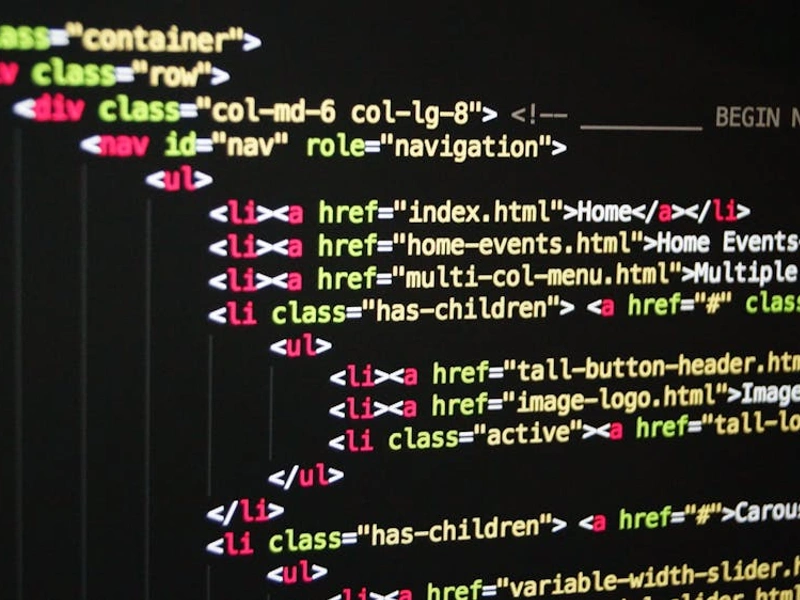Navigating the Complexities of AI Security and Low-Code Development
The Undefined Realm of AI Security
As artificial intelligence continues to evolve at a breakneck pace, one critical aspect that often trails behind is security. The term "security for AI" has become a buzzword without a clear definition because what constitutes AI itself remains fluid. Traditional security measures emerged after technologies like cloud computing or web applications matured. In contrast, with AI still developing rapidly and unpredictably, defining its security parameters is challenging.
The first step towards securing any technology is gaining visibility over its use within an organization. Many teams may be using or building AI applications without adequate knowledge or resources to ensure their safety. To address this issue head-on requires creating specialized teams tasked with inventorying all such applications - a daunting but necessary endeavor for standardization across enterprises.
One notable example highlighting the urgency for robust AI security was the response to ChatGPT's launch when companies scrambled to block it fearing data leaks through casual interactions with the chatbot. OpenAI eventually altered its policies due to widespread concern about sensitive information being used in training datasets.
This scenario echoes issues traditionally tackled by data loss prevention (DLP) tools and cloud access security brokers (CASB). Whether these existing solutions can adapt effectively to protect data within ever-evolving AIs remains an open question.
Prompt Injection: A New Challenge for Developers
From an engineering standpoint, one peculiar aspect of artificial intelligence is how it blurs lines between instructions and data - you provide text-based commands which users can augment with additional input. This creates opportunities for 'prompt injection,' where users manipulate application behavior despite safeguards put in place by developers.
For those crafting AI applications, controlling unpredictable models presents both a security risk and concerns over predictability and usability. When you allow AIs to act autonomously based on user inputs chained together sequentially, you venture into unknown territory where it's unclear if actions align with intended goals - a dilemma compounded by how AIs interact with real-world environments.
Most Copilot apps claim existing user impersonation-based controls offer sufficient protection; however, relying solely on user-managed permissions seems optimistic at best when safeguarding against curious AIs probing sensitive data.
Low-Code Development: The Accelerator for Modern App Creation
In the realm of software development, low-code platforms have emerged as a game-changer, especially for moderate developers who may not possess extensive coding expertise. These platforms provide a visual approach to application development, allowing users to construct applications using pre-built templates and drag-and-drop components. This innovation is particularly beneficial in an era where digital transformation is paramount but resources are often limited.
Moderate developers frequently encounter challenges such as complex demands of app development, time constraints, scalability issues, and security concerns. Low-code platforms address these pain points by offering an environment where functional and unique applications can be developed rapidly without deep dives into traditional coding.
The intuitive nature of low-code tools democratizes app development, enabling not just IT professionals but also business analysts and other non-technical staff to contribute meaningfully to the creation process. Collaboration becomes more accessible thanks to built-in tools that facilitate feedback loops and revision tracking within these platforms.
As businesses continue to adapt to ever-changing market needs, low-code platforms stand out as flexible solutions that can evolve with the organization's requirements. They offer scalability and integration capabilities that allow companies to extend their services without getting bogged down by the complexities of conventional software development processes.
AI Engineering: A Lucrative Career Path in Tech
Artificial Intelligence engineering has become one of the most sought-after career paths today. An AI Engineer's role encompasses developing intelligent systems capable of performing tasks traditionally requiring human intelligence such as decision-making or natural language processing. With a foundation in computer science and proficiency in programming languages like Python, these professionals are at the forefront of technological innovation.
AI Engineers must continuously update their skills due to the interdisciplinary nature of their work which involves collaboration with data scientists and domain experts among others. As AI continues its rapid growth trajectory, so does the demand for skilled engineers who can navigate this complex field.
Salaries reflect this high demand; entry-level positions in countries like India start at impressive figures compared to other engineering roles while experienced professionals can command salaries upwards of $150,000 annually in markets like the United States.
For those looking towards making a career shift into AI & ML fields or advancing within them, it's crucial to stay abreast with current trends and technologies through continuous learning and practical experience - factors that significantly influence hiring decisions alongside formal education credentials.
Conclusion
Navigating through both AI security challenges and embracing low-code development represents two sides of a coin in our modern tech landscape - one side focuses on safeguarding our advancements while the other enables us to innovate faster than ever before. As we delve deeper into integrating artificial intelligence into various sectors, understanding its security implications becomes critical for maintaining trustworthiness in technology-driven solutions.
Simultaneously, low-code platforms empower a broader range of individuals with diverse skill sets to participate actively in application development - fostering innovation across all levels within organizations. And amidst this evolving terrain lies lucrative opportunities for aspiring AI Engineers who play pivotal roles in shaping our future technologies while enjoying rewarding careers filled with growth potential.
As we look ahead into 2024 and beyond, it’s evident that both securing AI systems effectively against emerging threats and leveraging low-code methodologies will be key drivers propelling businesses forward – ensuring they remain competitive while navigating through digital transformations seamlessly.
